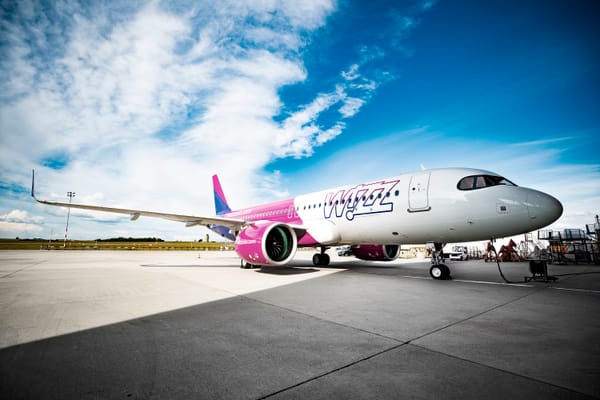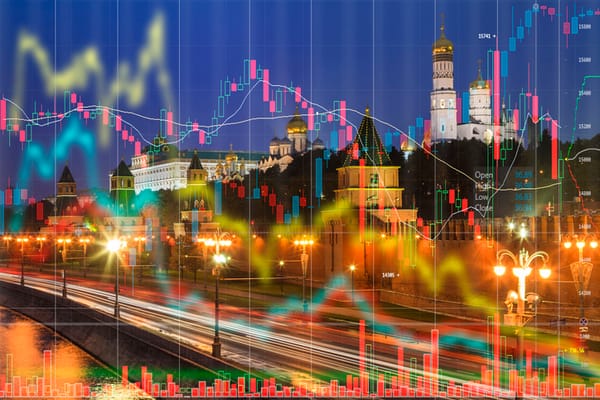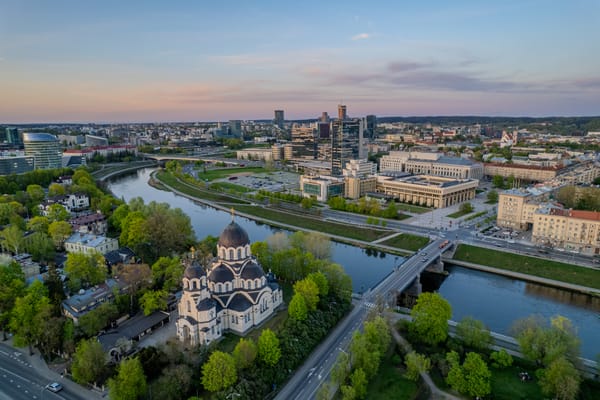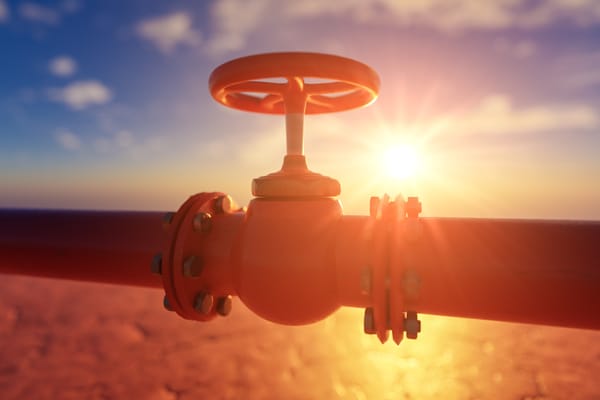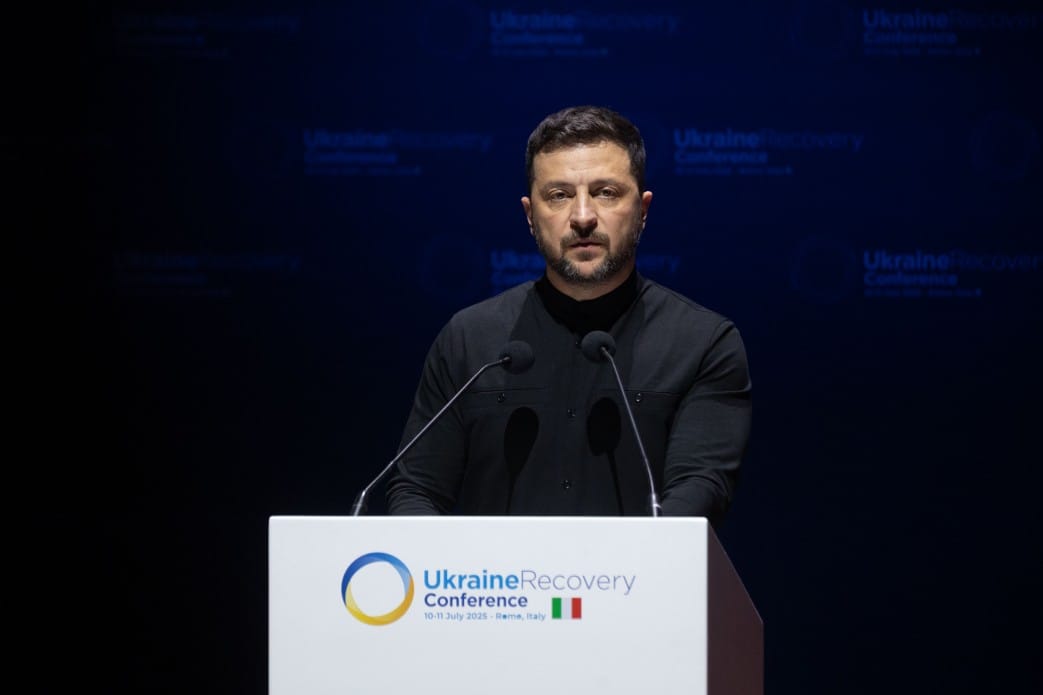
Poland, Czechia, Baltics lead Ukraine recovery push, Hungary, Slovakia reject plans
Central and Eastern European (CEE) governments expanded policy engagement and infrastructure investment for Ukraine’s reconstruction at the Ukraine Recovery Conference (URC) in Rome on 10-11 July.
CEE offers infrastructure, policy tools, towards Ukraine recovery
Poland committed to expanding the dry port in Slawkow, south Poland, into what Polish Prime Minister Donald Tusk called “a golden deal” for servicing eastbound cargo, while the Czech Industry Ministry and Baltic governments pledged new sectoral cooperation and technical exchanges. The European Commission (EC) also announced a EUR 2.3bn recovery package under the Team Europe initiative.
Ukraine secured EUR 3.55bn in new recovery agreements, Ukraine’s Economy Ministry said on 12 July, adding that memoranda of understanding (MOUs) signed during URC 2025 could unlock EUR 11bn in investments. Ukrainian President Volodymyr Zelenskyy described the conference outcome as “a clear sign of regional solidarity.”
Duda bemoans strains on Polish infrastructure
The German Marshall Fund (GMF) launched its Marshall Plan Initiative (MPI) to coordinate private-sector engagement and embed rule-of-law and anti-corruption safeguards. Outgoing Polish President Andrzej Duda said, “Both the Ukrainians and our allies… think that the airport in Rzeszow and our motorways belong to them… Well, it’s not theirs, it’s ours,” referencing logistical strain on Polish infrastructure.
The development comes as CEE countries increasingly frame Ukraine’s reconstruction as a regional economic and security priority. A GMF report published on 10 July identified Poland, Romania and the Baltic states as policy leaders, while Hungary and Slovakia have so far remained politically disengaged.
CEE contributions include cross-border logistics, public-private coordination platforms, and green recovery initiatives. Regional forums such as the Three Seas Initiative are also expected to play a larger role in financing and implementation.
Poland reinforces role as logistics core
The Polish State Assets Ministry announced on 10 July that construction had begun on a new logistics facility in Slawkow, south Poland, which will increase dry port capacity to 500,000 containers annually by 2027. Tusk said the investment would enhance Poland’s status as “the main corridor into Ukraine.”
Poland’s Council for Cooperation with Ukraine, chaired by Pawel Kowal, coordinates government, municipal and private-sector projects with Ukraine. Polish logistics firms including Rohlig SUUS and PKP Cargo have expanded operations in Rzeszow and Lublin to manage aid flows.
Czechia, Baltics deepen sectoral ties
The Czech Industry Ministry signed MOUs with Ukrainian regional authorities in July to develop manufacturing, housing and municipal infrastructure. Czechia’s National Recovery Plan allocated a portion of Recovery and Resilience Facility (RRF) funds to cover project guarantees.
Baltic states are advancing digital and governance cooperation with Ukraine. The Latvian Environmental Investment Fund announced a pilot programme with the Ukrainian Ministry for Communities, Territories and Infrastructure Development on 11 July, supporting green procurement and municipal energy audits.
The Estonian Centre for International Development is training Ukrainian local government administrators in e‑governance and budgeting frameworks, based on prior support provided to Georgia and Moldova.
Green law anchors reconstruction strategy
Ukraine’s Parliament adopted draft Law No. 9381 on sustainable energy and reconstruction standards on 8 July. The United Nations Development Programme said the law “promotes the development of a distributed energy system" and "stimulates investments by increasing the transparency and predictability of energy projects”
.Ukrainian NGO Razom We Stand said on 9 July that “Ukraine’s reconstruction is the unique chance for Europe as a whole… to achieve real energy security based on renewables.” The Italian government pledged EUR 300mn toward “green recovery” projects at the URC.
Poland and Lithuania are preparing green energy consortia to support post-war power infrastructure, citing potential in wind, solar and biomass. The EC’s Team Europe recovery package includes funding earmarked for circular economy and energy efficiency upgrades.
Hungary, Slovakia remain outside CEE coordination efforts
Hungarian Prime Minister Viktor Orban said on 28 June that “Hungary will be the decisive factor on whether Ukraine can join the European Union,” and reiterated that his country would block any new EU recovery funding to the war-torn country. Hungarian Foreign Minister Peter Szijjarto said on 23 June that “We will not allow Hungarian money to be sent to Ukraine.”
Slovak Prime Minister Robert Fico said on 25 June, “I will not send a single bullet to Ukraine,” while affirming continued commercial exports. His position has aligned with Hungary on key reconstruction votes, including blocking new EC loan mechanisms.
Analysts at the GMF and Centre for European Policy Studies (CEPS) suggest Hungary and Slovakia could be reintegrated via Three Seas infrastructure incentives or pilot green recovery projects that offer measurable domestic returns.
“Past recovery conferences have produced grand ideas with zero follow-through,” former US Special Representative for Ukraine Kurt Volker said on 10 July. “What’s missing is a permanent body to drive private-sector investment.”

